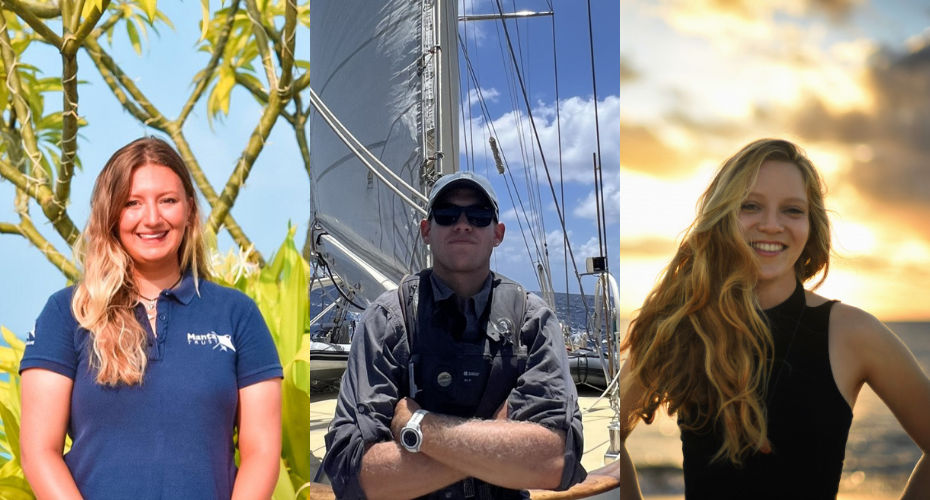From the shores of Cornwall to coral reefs half a world away, University of Exeter alumni are making waves in marine science, education, conservation, and communication. As we mark National Marine Week (26 July – 10 August) — a time to honour and explore the UK’s extraordinary marine environments — we’re also shining a spotlight on the thriving community of researchers and alumni connected to Exeter Marine, based on our Penryn Campus.
To discover more we caught up with alumni Jess Haines, Ben Pearce, and Lucie Machin. Their stories are as varied as the oceans they study, from manta ray conservation in the Maldives, to sailing the world as a marine educator, and telling powerful environmental stories through film. Yet they all began their journeys at Penryn, united by a shared curiosity for the underwater world and a commitment to protecting it.
Jess Haines (BSc Zoology, 2016 and MRes Marine Biology and Conservation, 2023)
Alumna Jess Haines is a PhD researcher (PhD Marine Biology and Biological Oceanography, 2023- 2027) specialising in manta rays, and began her journey on our Penryn Campus, studying Zoology and diving headfirst into the underwater world.
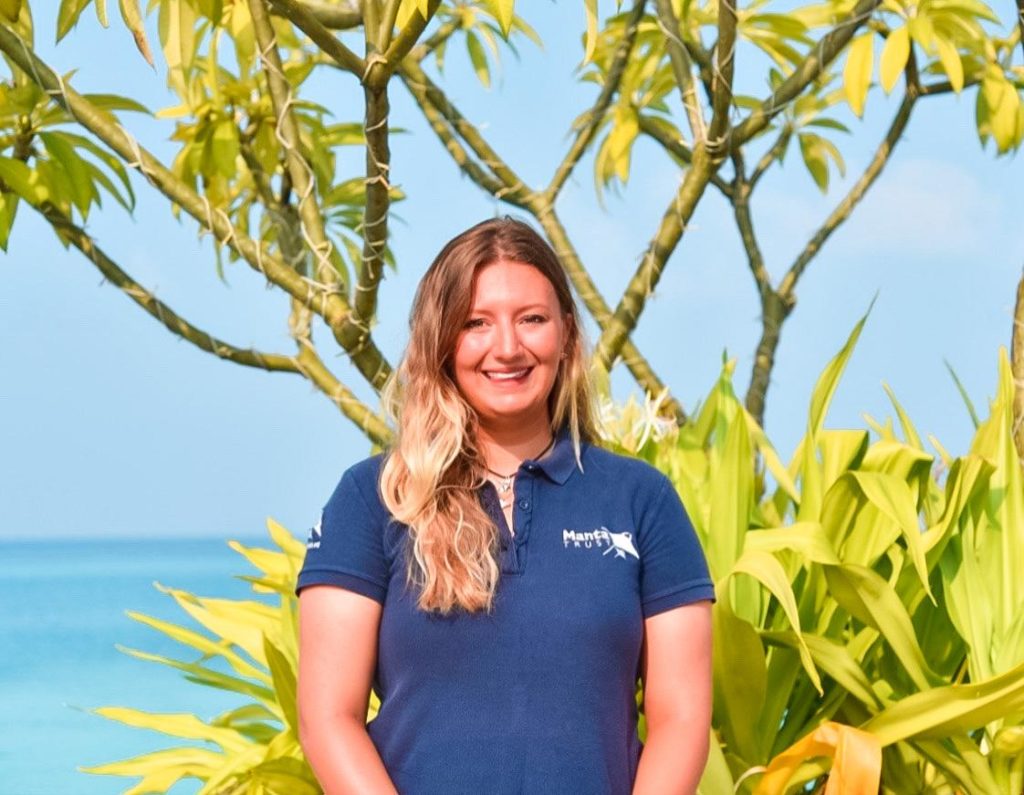
“I found myself gravitating toward marine-focused modules,” Jess recalls. “Whenever I had the freedom to choose my assignment topics, I’d always choose something marine-related.” Alongside her studies, she trained as a scuba diver — starting with her Open Water certification in first year and becoming a Divemaster by graduation. “Spending so much time underwater deepened my curiosity and made me want to understand the marine environment on a scientific level,” she explained.
A pivotal moment came in her final year, when Jess made a last-minute switch from a Kenyan field course to a marine-based one in the Bahamas, at the Cape Eleuthera Institute. “It was the best decision I could’ve made,” she says. “Getting hands-on experience in marine research was incredibly valuable and really cemented my desire to work as a marine biologist abroad.”
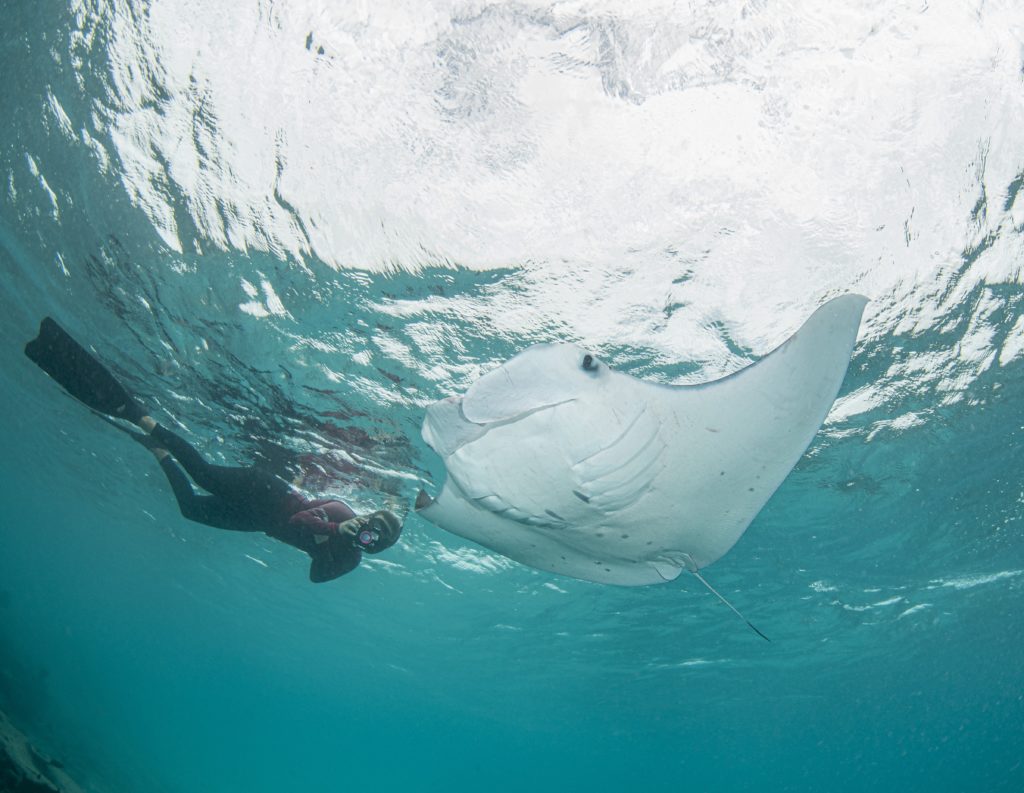
After graduating, Jess stepped away from academia and moved to the Cayman Islands to work as a divemaster and marine education and outreach intern. That role led to becoming a dive instructor, and eventually to a position as a resort marine biologist in the Maldives where she encountered manta rays for the first time. “Words can’t quite capture how awe-inspiring they are,” she says. “Their intelligence and curiosity are captivating, and it was that fascination that made me want to understand them better.”
That encounter sparked a new chapter in Jess’s career. She joined the Manta Trust as a Project Manager, working in the Maldives for four years before returning to the UK to pursue a PhD focused entirely on manta rays. “It’s been a winding path,” she reflects, “but every step, from my time at Exeter to my work in the field, has brought me closer to the goal of contributing meaningful research to the conservation of these incredible animals.”
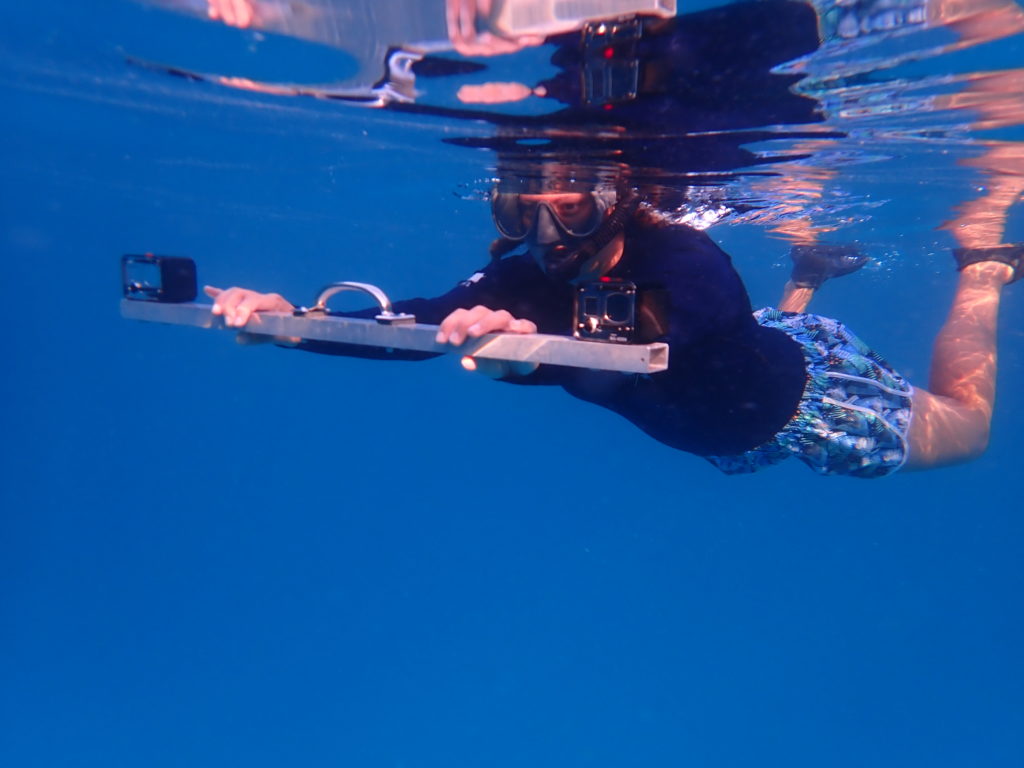
Her fieldwork has been filled with unforgettable moments, but one stands out. While studying juvenile manta rays in the Maamunagau Lagoon, Jess met Jojo, a young manta she’d identified and seen many times. Two years later, in Hanifaru Bay, a small manta approached her group of snorkellers. “To my amazement, it was Jojo,” Jess says. “She flipped upside down right in front of us, almost like she was saying hello.” It was a full-circle moment and one that inspired a chapter in her thesis exploring where juveniles go when they leave their nursery habitats.
Jess’s work has also reached wider audiences through science communication. While working at the InterContinental Maldives Maamunagau Resort, a press visit led to her research being featured in BBC Wildlife magazine. “It was a real honour,” she says. “The experience made me appreciate the value of working with PR to promote conservation. Communicating our science beyond academia is just as important as doing the research itself.”
She also kindly shared her advice for aspiring conservationists: “Get as much hands-on experience as you can, and don’t be afraid to start small. Things like communication, data handling, public engagement, as well as field experience, can open doors and make you more versatile in a team. And don’t forget to network. The worst anyone can say is no.”
You can follow Jess’s career on Instagram and on LinkedIn.
Ben Pearce (BSc Conservation Biology and Ecology, 2021 and MSc Marine Environmental Management, 2023)
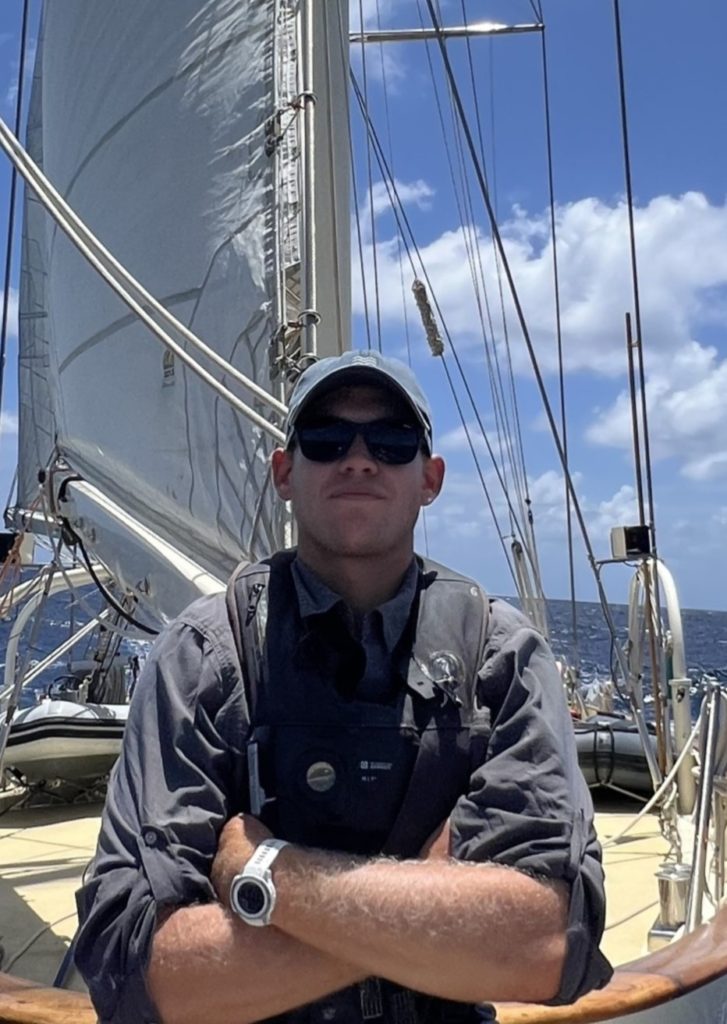
Since completing his studies at Penryn, Ben’s career has taken him across continents and oceans, blending research, teaching, and community engagement in powerful ways.
“The amazing network of academics, friends and teachers I developed throughout my two degrees at Exeter has proved invaluable,” Ben reflects. “I’ve always had this overarching goal of contributing to academia and improving the state of the world’s ocean, and I realised that saying ‘yes!’ to opportunities, especially at this stage in my career, is so important.”
One of those opportunities came in the form of a role with Sea|mester, an organisation that delivers experiential education aboard sailing vessels. Despite being a confident PADI Scuba Instructor with a strong foundation in marine conservation, the job pushed Ben into unfamiliar territory — teaching university-credit courses from the University of South Florida, leading watch teams across oceans, and learning to sail.
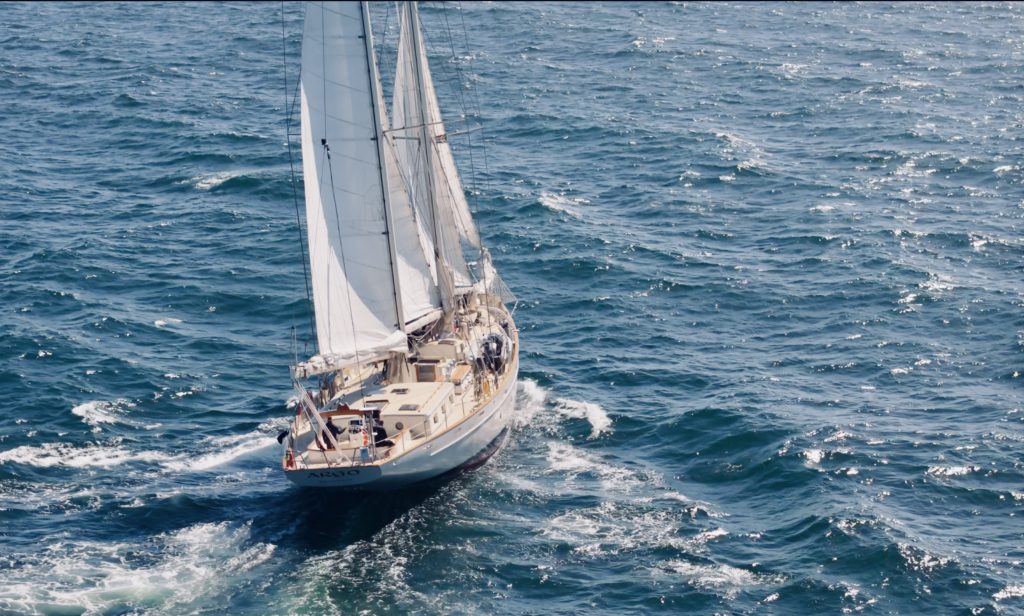
“It was nerve-wracking,” he admits, “but having completed my first year with the company, I’m now on the verge of obtaining my professionally endorsed offshore captain’s license. I’ve developed a much deeper appreciation for the ocean, which will ultimately improve my ability to contribute to conservation in the future.”
Before setting sail, Ben spent time in Costa Rica working with two conservation organisations: Comunidad Protectora de Tortugas de Osa (COPROT), which focuses on beach censuses, and the long-term recovery and monitoring of sea turtles, and ConnectOcean, which builds the capacity for local communities to take charge of their local marine environments, focusing on providing the specific skills needed for marine spatial planning and successful conservation.
It was during this time that Ben saw first hand how powerful community engagement can be. “Working with Ernst van der Poll, the founder of ConnectOcean, was inspiring,” he says. “I learnt so much applying what I had learnt from working with the Maldives Manta Conservation Project during my MSc to the oceanic manta population in Guanacaste, and how powerful community engagement can be when implemented effectively.”
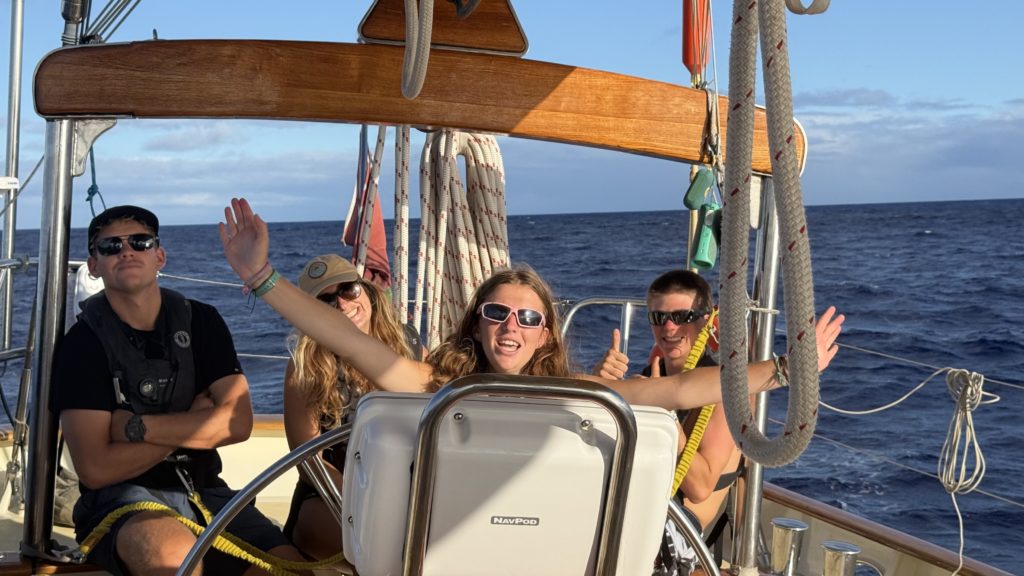
Now teaching marine biology and scuba diving aboard S/Y Argo, Ben is passionate about place-based learning. “Delivering a lecture on coral reef ecology and then diving the reefs of Komodo (Indonesia) that same day is special,” he says. “It helps build the capacity for marine conservation within these young adults.”
“What’s been particularly unexpected is the hope this job has given me,” he adds. “The compassion, love, and care these cohorts of students take with them after a 90-day semester is phenomenal.”
Ben’s advice to aspiring marine conservationists is rooted in passion and purpose. “Find an area that excites you and makes you happy,” he says. “When you’re happy, the sustainability of your job and the connections you build vastly improve. Keep your passion and emotional reasons for caring about conservation at the heart of your personal and professional choices, both of which will inevitably improve the effectiveness of the messages you are trying to deliver and further help to conserve our marine world.”
You can follow Ben’s career on Instagram and on LinkedIn.
Lucie Machin (MSc Conservation and Biodiversity, 2018)
After graduating from MSc Conservation and Biodiversity on our Penryn Campus, Lucie began to explore a career in the conservation sector. She took on roles as a Research Assistant at the University of Exeter, and as a Conservation Fieldworker with the Ascension Island Government in the South Atlantic Ocean, building on other conservation fieldwork experience she had completed before her masters. However, the Covid-19 pandemic, and the resulting downturn in traditional conservation roles during this period, caused Lucie to rethink her options.
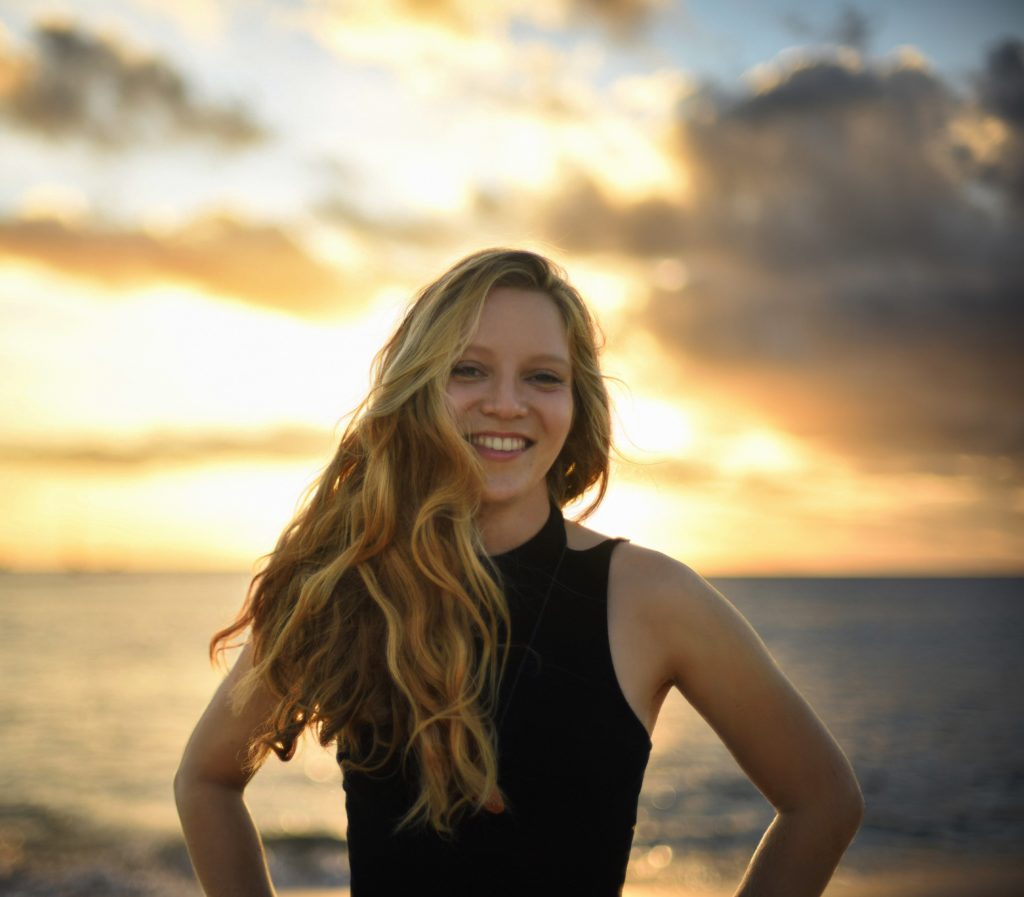
When she came to rethinking her future, a career in environmental filmmaking was at the top of the list. Whilst undertaking her masters, Lucie discovered an interest in environmental storytelling. “We had several seminars which looked at the importance of communications and storytelling: from helping to positively engage local people with conservation projects, to encouraging behavioural change on a societal level.” During the last four years, Lucie has worked as a researcher, camera operator, and producer, before landing her current role as a Camera Assistant on BBC’s Countryfile.
Reminiscing about some of her most rewarding projects, Lucie told us about her time filming oyster reef restoration work with the Blue Marine Foundation and the Zoological Society of London, off the Tyneside and Conwy coast, for the Wild Oysters Project. “Seeing my footage being used by the likes of the BBC and World Economic Forum to show people around the world such a positive conservation story was really rewarding.”
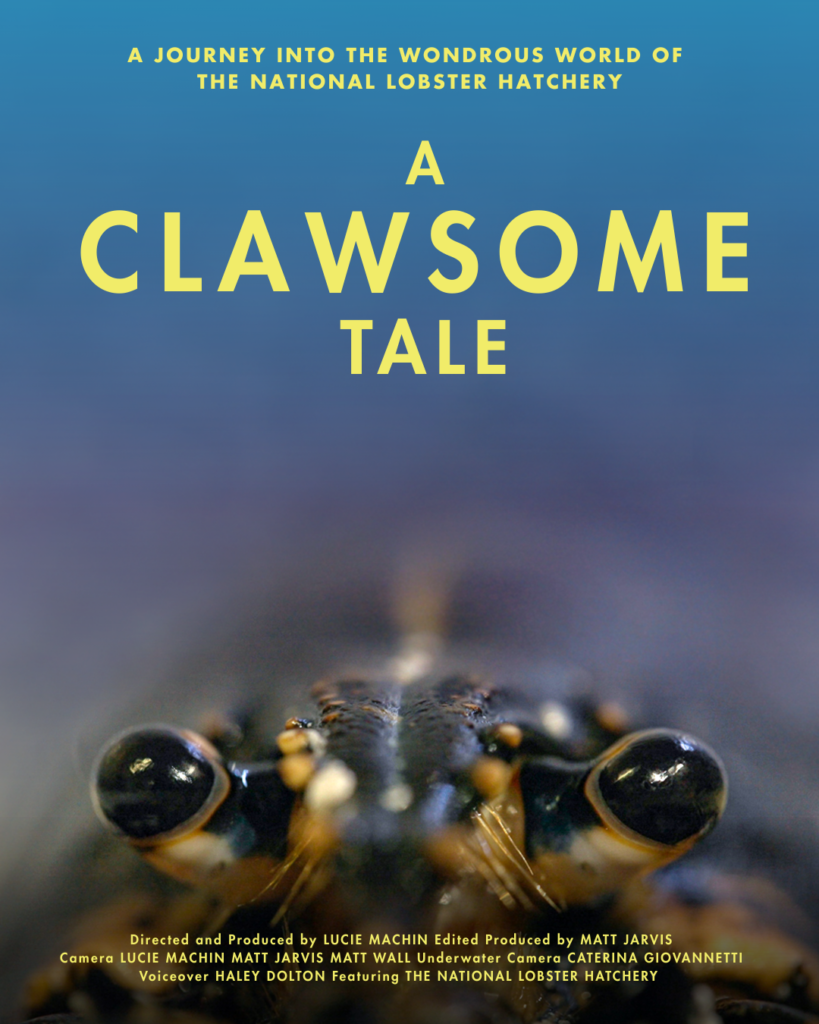
Another big moment in Lucie’s career, has been directing her first crowdfunded documentary about the work done at The National Lobster Hatchery in Cornwall. “This felt particularly special to me, as it was quite a full circle moment, having first visited the hatchery as part of my masters studies where I started thinking about environmental storytelling as an option”. ‘A Clawsome Tale’ is available to view online, and the short film will be touring around Cornwall soon.
Reflecting on a career in environmental storytelling, Lucie says “Working as a storyteller holds a lot of responsibility and power. As a storyteller you make decisions about which stories to tell, which narratives to use and which people to work with. It’s important to tell and share stories in a way which is fair, respectful and truthful.”
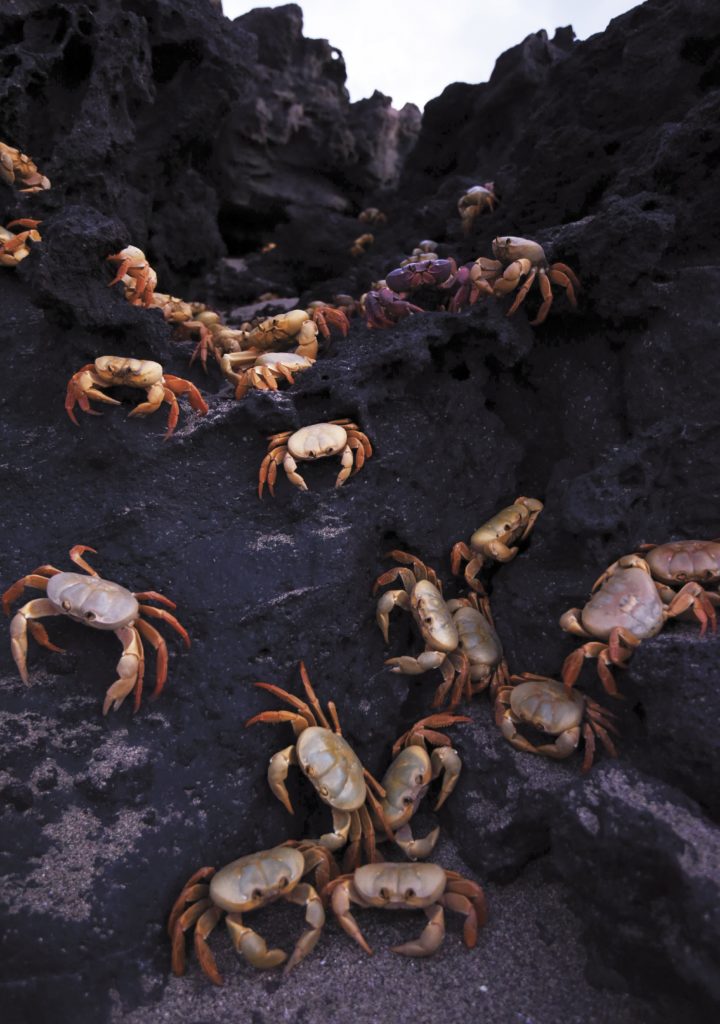
What would Lucie’s advice for aspiring environmental filmmakers be? She shares, “Without sugar coating it, it’s a tough industry to get into. However, there are so many stories which need telling, which need people with the skills, knowledge and sensitivity to translate them well.”
“If you’re thinking of getting into filmmaking but don’t know where to start, then just start filming where you are, with the equipment you have. It’s much more important to learn to tell a story well, than get put off by not having the right gear or not having lots of experience already. You could make a really good short film just by using a smartphone and a decent microphone. Try reaching out to local conservation or environmental projects and see if they need any support.”
You can follow Lucie’s career on Instagram and on LinkedIn.
Congratulations to Jess, Ben and Lucie on all their success so far in their careers – we’re very proud of you all and can’t wait to follow your next chapters!
We love to hear news from our alumni so do always feel free to reach out via email at alumni@exeter.ac.uk, DM us on socials or tag us in your posts. And if you’re interested in finding out more about what other alumni have got up to since graduating, take a look at our Alumni Profiles website. You can also discover more about what the Exeter Marine research group is up to via their website.

